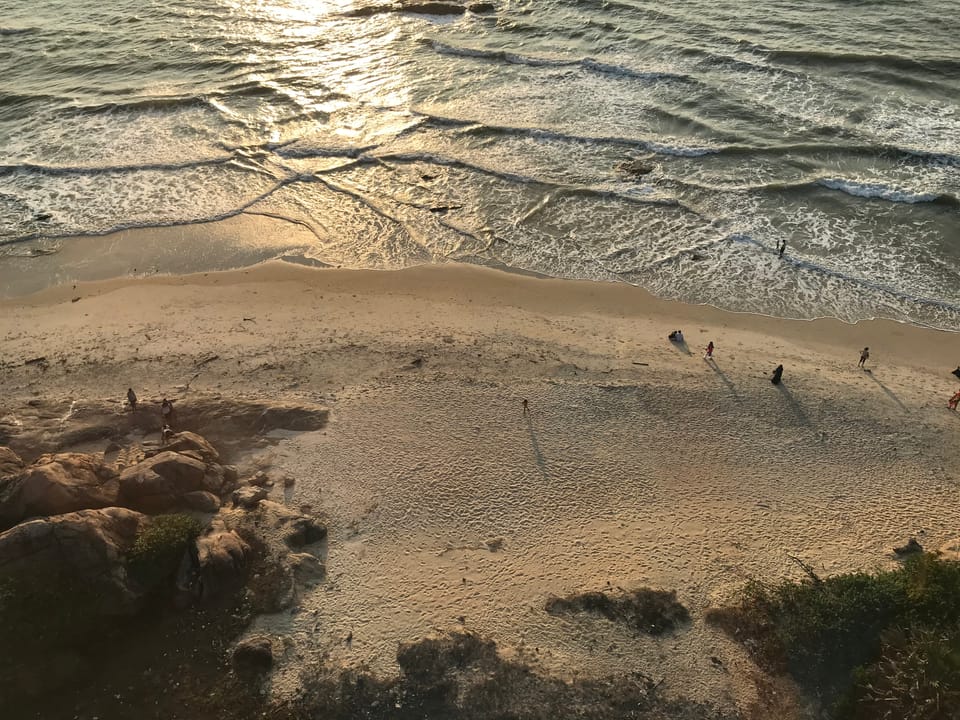#21 Five big marine sector themes to watch out for in 2025

Happy new year, dear readers. May 2025 bring forth a total annihilation of capitalism. Keeping this edition super short, here are five big things to keep your eyes peeled out for in the marine sector.
- Trade waters are wavering
Ocean trade routes to continue to get disrupted. Israel's genocide of Gaza and Russia's war on Ukraine has caused major disruptions in the trade routes shipping containers take to transport cargo from one port to another. Freight rates are going up because of the longer alternative trade routes, searching for safe ports to dock, rising insurance costs and an increase in use of fuel and other resources. The resulting trade markets are going to see major fluctuations.
Read more here: https://www.mondaq.com/russianfederation/marine-shipping/1563960/the-impact-of-russia-and-ukraine-war-on-maritime-trade - Strike till they get it right
From India to America, port worker unions across the world are unhappy with wages and pension schemes, will go on strikes more frequently. This is going to hurt trade A LOT.
Read more: https://economictimes.indiatimes.com/small-biz/trade/exports/insights/maersk-asks-customers-to-remove-cargo-before-potential-strike-at-us-ports/articleshow/116847157.cms
https://shippingtelegraph.com/port-news/indian-port-workers-threaten-indefinite-strike-from-december-17/ - Mining the sea-bed
As the world, especially the global north tries to transition away from fossil fuel towards renewable sources of energy, extracting minerals to build the infrastructure for harnessing solar, wind and hydro energy is imperative. Some of these minerals occur in the sea-bed, and there are heavy discussions around the globe, especially the global north, trying to get the nuance of ethics in place — can the destruction of the seabed be redeemed if it provides a basis for an endless, renewable supply of energy? Is it worth giving up the precious minerals and the surrounding ecosystem of the ocean for the 'greater good' of endless supply of energy? If the outcome is renwable energy, is seabed mining really extractive? Such questions are being pondered upon by world leaders. The fate of the ocean bed lies in their moral compass.
Read more here: https://www.lse.ac.uk/granthaminstitute/explainers/what-is-deep-sea-mining-and-how-is-it-connected-to-the-net-zero-transition - Climate change is at the doorstep
Warmer waters, ocean acidification, plastic pollution, tropical cyclones is the general vibe of the oceans going forward. As a result, there will be more coastal migrations, saline water instrusions into land, coral bleaching, higher marine strandings and a more dire need for funds into disaster management plans and implementations.
Read more: https://www.thenorthernecho.co.uk/news/national/24827751.past-climate-change-shifts-ocean-currents-winds-southern-ocean/ - Small scale fishers will fight more vociferously for their rights than ever before.
In the recently released report SAMUDRA, the members of International Collective of Small-Scale Fishers call for a more organised effort towards representation. They call for a desire “to further develop and consolidate the Global Strategic Framework in Support of the Implementation of the SSF Guidelines (SSF-GSF), as a partnership mechanism giving small-scale fishery actors, government representatives and other stakeholders a space to collaborate at a global level." The Food and Agricultural Organisation (FAO) of the United Nations formulated the Voluntary Guidelines for Securing Sustainable Small-Scale Fisheries in the Context of Food Security and Poverty Eradication in 2014. Also known as the SSF Guidelines, this is the first international instrument dedicated entirely to the small-scale fisher. The guidelines emphasize adoption of a human rights-based approach and advocate participation of fishing communities in the decision-making processes, while they assume responsibility for sustainable use of fishery resources.
Read more: https://icsf.net/newss/just-out-samudra-report-no-92-with-special-focus-on-the-ssf-guidelines-2/
